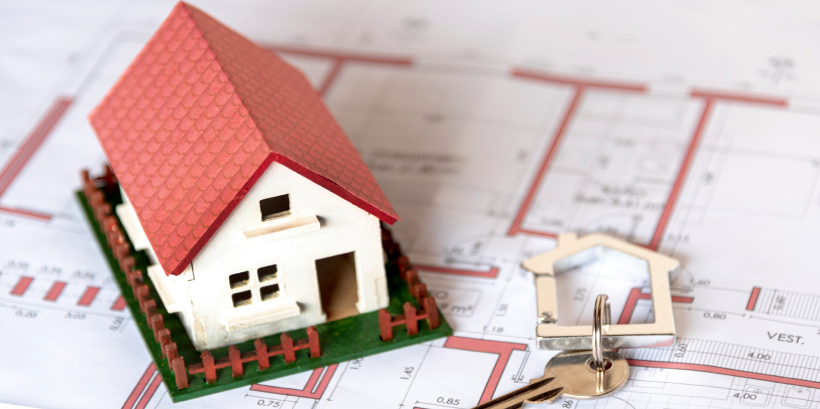Given the over-saturated real estate market in the United States, it is not a surprise that many investors are turning to land development. Everyone is drawn to the trend of investing in undeveloped land. As both novice investors are ready to enter the real estate market, the most common query today is how to invest in land development in the right way.
On this note, the real estate industry offers several lucrative options for investors for land development investment. Although purchasing undeveloped land is a challenging tangible investment, new investors shouldn’t always avoid it.
If you are thinking about the best ways to invest in land development, this blog is for you. The following guide may help you get started with how to invest in land development, steer clear of some frequent mistakes, and lead you in the right direction.
Table of Contents
What is Land Development?
For detailed knowledge on how to invest in land development, it is, first, important to have an idea of what is land development.
Raw land development is the act of purchasing a plot of land to either construct it or hold it for future appreciation. Researching for the perfect raw land is the very first step to start the land development process.
If you’re wondering why land is considered an investment, it is because of the land value increase over time. Besides this, there are several key advantages to investing in raw land development. This includes the potential to sell the property, generate passive income from renting it out, or just benefit from its appreciation.
Why is Land Development Important?
Before taking you through how to invest in land development, let’s have a look at why land development is important.
Land development process is important as developed land drives economic growth and improves infrastructural growth. It also helps in providing employment opportunities and in urban expansion. These lead to improvements in living standards while ensuring efficient land use.
Furthermore, by buying land for development, you can also contribute to providing spaces for housing, agriculture, public amenities, or commercial purposes. With this, by opting for raw land development, you can assist in community development and meet the needs of the growing population.
How to Invest in Land Development?
Investors who are interested in buying land for development should conduct a thorough market analysis before finalizing their investment.
To begin how to invest in land development, keeping an eye on real estate market trends is the best course of action. You’ll be able to predict when and where to buy if you can follow the market’s periodic movements.
Now that you have a general understanding of how to invest in land, let’s walk you through the process of investing in land for development.
Step I: Analyze the Project’s Economic Viability
This is the very first step while considering the process of how to invest in land development. Analyzing the economic viability of raw land investing is crucial. This is because it will present you with a model of the costs and profits of your land development investment. Although the figures will only be estimates, knowing the viability of your project—including the costs, income, and overall return projections regarding the land for sale can assist investors in assessing whether they have a chance of success.
Step II: Acquisition
This is the next step you must know while considering how to invest in land development. At this stage, you must look into the documentation and ownership transfer processes that are involved while investing in land.
You can more accurately calculate the offer price after you are aware of the expenses you’re likely to incur. At this point, investors must request that contractors submit bids for the project. This shall help you make an informed decision while choosing the right quote to go ahead with the investment.
Step III: Zoning Codes
The third stage of land development investment focuses mostly on the architecture of the land. Zoning is a key factor in deciding how you should proceed with the land development, depending on the kind of property you want to construct or the plan you have to market it to attract purchasers.
Zoning regulations will essentially dictate what kinds of buildings can be constructed on the property, including single-family, multifamily, commercial buildings, etc. As a result, before making a land development investment, investors should research the zoning laws.
Step IV: Financing
The type of financing you acquires from lenders or banks will depend on how you intend to use the land, as with all kinds of real estate transactions. The loan-to-cost ratio is a major factor that investors, both new and experienced, need to pay close attention to. The LTC will typically rely on the type of construction you want to build on the property.
Step V: Construction
At this stage of how to invest in land development; we are moving forward with infrastructural development.
Construction is the next step in raw land development process. The site will eventually be built from the ground up, with horizontal development such as digging for roads, curbs, and utilities taking place along the way.
Step VI: Marketing
Finally, the last step in how to invest in land development lets you focus on preparing land for gaining ROI.
Marketing is the final stage of this raw land development process. Investors must create a strong marketing strategy to lure buyers to the finished property. This could entail contacting a realtor and using internet listings, newspaper advertisements, and social media platforms. To attract buyers, they can draw attention to the quality of land and future projects that will come up.
Important Factors in Land Development
For detailed knowledge on how to invest in land development process and prepare for significant returns, consider checking out the important factors that tend to affect land development.
It is no secret that it takes strength to develop the land. Furthermore, a great amount of work and research is also required in the process of land development investment. This process can, however, be very worthwhile with careful planning. So, before you begin, take a moment to review the following tips for land development:
- Calculate the Holding Costs
It may take some time for your land development investment to start producing ROI. This is because zoning and building approvals are time-consuming processes. So, while strategizing for how to invest in land development, make sure you precisely calculate the holding costs related to land development. This is crucial especially when it comes to loan repayments so that you are ready for the “in-between” stages.
- Keep up with the Market Trends
This is the next crucial factor you must consider while planning how to invest in land development.
On this note, before concluding a deal for raw land for sale, conduct a thorough market analysis and track developments over time. Furthermore, also consider keeping an eye on nearby land development initiatives. This shall then help plan when to begin (or end) developing your raw land.
- Recognize Potential Risks
Although raw land developments have many advantages, there are a few risks involved too. Thus, while planning how to invest in land development, consider performing thorough research before making a deal. This shall help minimize potential hazards and stay prepared for any major hiccups that you might face during the purchase process.
- Work with experts
Despite the effort, real estate investors are unable to master everything or be everywhere at once. Therefore, to avoid leaving a single stone unturned, you need a trustworthy team of experts to support your raw land development plans.
So, for a comprehensive and informed strategy on how to invest in land, connect with experienced experts. Also, consider ensuring your team of project managers, contractors, and construction employees are highly efficient in understanding your requirements.
Key Takeaway
To conclude, this is everything you must know for a comprehensive understanding of how to invest in land development.
If you’re looking for an effective real estate investment strategy, researching the process of developing undeveloped land may be vital. Additionally, investing in raw land development is a smart, low-cost strategy that helps you grow your real estate portfolio efficiently.
Also, to succeed with raw land development, consider implementing the steps listed above. As you use this investment technique, keep in mind to rely substantially on research and analysis. Always plan your investment by taking into consideration any modifications to the location.
To find profitable land for sale in the USA and add a land development investment to your portfolio, connect with us and set yourself apart from the crowd.











